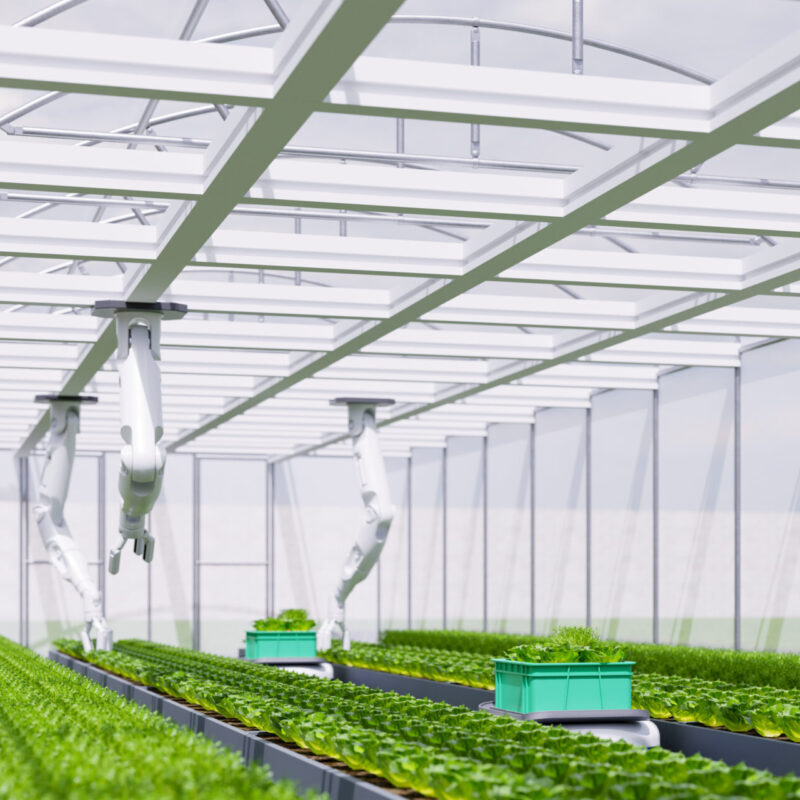Agriculture is undergoing a significant transformation thanks to artificial intelligence (AI). As the demand for food increases and natural resources become scarcer, AI emerges as a key tool to make farming more efficient, sustainable, and productive.
Crop Management Monitoring
One of the most notable advancements in smart agriculture is the use of drones and AI-equipped sensors for crop monitoring. These devices collect real-time data on plant health, soil moisture, and other environmental factors. AI analyzes this data to identify patterns and anomalies, allowing farmers to make informed decisions about irrigation, fertilization, and pest control.
Yield Prediction
AI is also revolutionizing how farmers predict their yields. By utilizing machine learning algorithms, predictive models can analyze historical and current data to estimate future production. This forecasting ability helps farmers plan and optimize resource use, minimizing the risk of surpluses or shortages.
Precision Agriculture
AI-powered precision agriculture enables a more tailored approach to crop management. AI-based systems can apply inputs like fertilizers and pesticides precisely where needed. This not only reduces waste and environmental impact but also improves overall crop health and yield.
Automation and Robotics
Automation in agriculture is gaining ground thanks to artificial intelligence. Agricultural robots like autonomous harvesters and planters are becoming increasingly common. These robots can work tirelessly, performing repetitive tasks with high precision. AI allows these robots to adapt their behavior to changing field conditions and crop variations.
Pest and Disease Management
Computer vision and machine learning-based systems can identify signs of infestations or diseases in plants long before they become severe issues. This allows for quick and effective intervention, reducing the need for aggressive chemical treatments.
Resource Optimization
Intelligent systems can efficiently manage irrigation, ensuring that each plant receives the right amount of water without wasting resources. Additionally, AI algorithms can help choose the best farming practices and maximize the use of available resources.
In conclusion, artificial intelligence is ushering in a new era in agriculture. From crop monitoring to automation and resource management, AI offers innovative solutions that can transform how we produce food. As we overcome challenges and embrace these technologies, smart farming has the potential to make food production more sustainable, efficient, and better adapted to the needs of the future.
Discover here our hydroponic greenhouses




